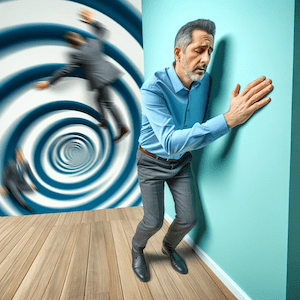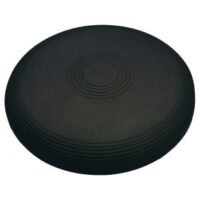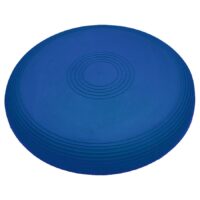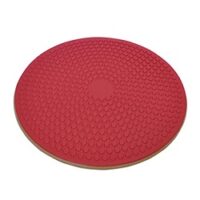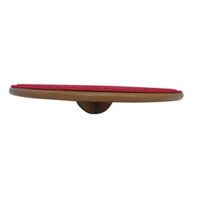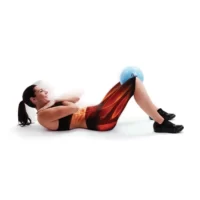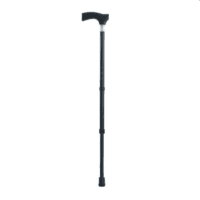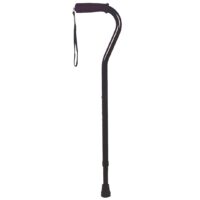Meniere's disease
Article by S.Armfield, Z. Russell

What is Meniere’s Disease?
Meniere’s disease is a disorder that affects the inner ear. The inner ear contains tubes filled with fluid called “labyrinths.” The inner ear is responsible for your balance, as well as hearing. This disorder causes vertigo (a spinning sensation), hearing problems, and a ringing sound in the ear.
What Causes Meniere’s Disease?
The symptoms of Ménière’s disease are caused by the buildup of fluid in the compartments of the inner ear, called the labyrinth. The labyrinth contains the organs of balance (the semicircular canals and otolithic organs) and hearing (the cochlea). It has two sections: the bony labyrinth and the membranous labyrinth.
Meniere’s Disease Symptoms
Symptoms of Meniere’s Disease include:
- vertigo (attacks can last anywhere from a few minutes to 24 hours)
- loss of hearing in the affected ear
- tinnitus (a sensation of ringing) in the affected ear
- a feeling of fullness in the affected ear
- loss of balance
- headaches
- nausea, vomiting, and sweating caused by severe vertigo.
How is Meniere’s Disease Diagnosed?
Diagnosing Meniere’s disease requires two episodes of vertigo, each lasting 20 minutes or longer but not longer than 24 hours. A hearing test verifies hearing loss: tinnitus or a feeling of fullness in your ear.
Meniere’s Disease Treatment
Motion sickness medications, such as meclizine or diazepam (Valium), may reduce the spinning sensation and help control nausea and vomiting. Anti-nausea medications, such as promethazine, might control nausea and vomiting during an episode of vertigo.
Meniere’s Disease Prognosis
Most people can manage their Meniere symptoms with diet and lifestyle modifications and a medical plan prescribed by their doctor.
- With a thorough evaluation, and if you are motivated, you can often control attacks. Regular follow-ups with your doctor and any ENT specialists are needed to monitor symptoms and progress and adjust therapy throughout the disease process.
- Only a minority of people require a surgical procedure to control their attacks. You should consider a thorough evaluation by an ear, nose, and throat specialist if medical management fails.
- If hearing levels decrease over time, You may need amplification of sound or surgical management in extreme cases to improve hearing.
Vertigo & Dizziness
Common Causes
- What is Vertigo?
- What is Dizziness?
- BPPV – Benign Paroxysmal Positional Vertigo
- Meniere’s disease
- Neck dizziness (cervicogenic dizziness)
- Inflammation in the inner ear
- A vestibular migraine
- Vestibular neuritis
- Acoustic neuroma
- Rarely can vertigo be a symptom of a more serious neurological problem such as a stroke or brain haemorrhage.
Due to the complex diagnostic skills required to diagnose the cause of your vertigo or dizziness accurately, we highly recommend seeking the professional opinion of a healthcare practitioner with a special interest in assessing and managing vestibular disorders.
Article by Shane Armfield
Discussing Vertigo & Dizziness Causes
Navigate Your Way to Steady Ground
Battling vertigo or dizziness can make even the simplest tasks feel daunting. These unsettling sensations can disrupt your routine, making it a struggle to walk, drive, or simply stand up without feeling unstable. Recognising the causes behind vertigo and dizziness is the first step towards regaining your balance and resuming life as usual.
Vertigo & Dizziness Information
Our vertigo and dizziness articles on this website discuss the common origins of vertigo and dizziness.
From the dislodging of tiny crystals in your ear that leads to benign paroxysmal positional vertigo (BPPV) to the fluid build-up in Meniere's disease, we cover the spectrum of conditions that might be tipping your world upside down.
We also tackle cervicogenic dizziness—a less known but equally significant cause stemming from neck issues.
Vestibular FAQs
In addition to outlining potential causes, we address frequently asked questions to help you understand the nuances of vertigo and dizziness, their symptoms, how they're diagnosed, and the treatment options available. By equipping you with this knowledge, we hope to empower you to take control of your symptoms.
Read more: Vestibular FAQS
Vertigo Causes
Vertigo frequently surfaces as a symptom of underlying ear or brain problems. Key triggers include:
Inner Ear Disorders:
BPPV, where ear canal crystals go awry, inducing dizzy spells.
Meniere's Disease:
Characterised by inner ear fluid imbalance, triggering vertigo bouts. read more: Meniere's disease.
Vestibular Neuritis or Labyrinthitis:
Inner ear infections that lead to inflammation and dizziness.
Identifying the exact vertigo cause allows health professionals to customise treatment, potentially reducing or resolving the dizzying episodes.
Dizziness Causes
Dizziness arises from a variety of sources, which can be mild or more severe. These include:
Cervicogenic Dizziness:
Often overlooked, this stems from neck problems disrupting sensory communication to the brain. Read more: Cervicogenic dizziness.
Low Blood Pressure:
Sudden drops can result in momentary light-headedness.
Medications:
Certain medications list dizziness as a potential side effect.
Anxiety or Stress:
Can lead to bouts of dizziness during periods of heightened stress.
Grasping the causes of dizziness is imperative for practitioners to advise and manage symptoms effectively.
Conclusion
Tracing the roots of vertigo and dizziness is intricate. While many causes are benign and manageable, others may hint at more serious underlying conditions. It's crucial to seek professional input. Vestibular specialists, including ENT doctors and vestibular physiotherapists, are here to help you navigate through these choppy waters to find solid ground.
Your Next Step
If vertigo or dizziness is disrupting your life, don't hesitate to book an appointment to assess your vertigo or dizziness. For more information and practical advice on managing the causes of vertigo and dizziness, peruse our Vestibular Physiotherapy section and explore our FAQs.
Ready for a Change?
Make an appointment with us today and take the first step towards a steadier tomorrow.
Related Articles
- Cervicogenic Dizziness & Cervical Vertigo - Tips & Treatment: Readers will find detailed explanations about how neck disorders can lead to dizziness and vertigo.
- Vertigo & Dizziness: This article offers a broad overview of dizziness and vertigo, providing insights into their differences and potential causes.
- Vestibular Physiotherapy: Balance & Dizziness Solutions: Explore how vestibular physiotherapy can help manage and treat balance issues and dizziness.
- What Are The Four Types Of Dizziness?: Readers will learn about the four distinct types of dizziness and their respective causes and symptoms.
- Meniere's Disease: An in-depth look at Meniere's Disease, offering insights into its symptoms, diagnosis, and management.
- Vestibular Migraine: This page discusses vestibular migraines, highlighting their unique challenges in diagnosis and treatment.
- Neck Pain: Find comprehensive information on the various causes of neck pain and its relationship to dizziness and vertigo.
- What Are The Symptoms Of BPPV?: An article detailing the symptoms of Benign Paroxysmal Positional Vertigo (BPPV), helping readers to better understand this condition.
- Vestibular FAQs: Offers answers to frequently asked questions about vertigo and dizziness, enhancing understanding of these conditions.
- Vertigo Causes & Dizziness Causes - Advice & Managing Tips: Provides information on the various causes of vertigo and dizziness, along with tips for managing these conditions.
Article by John Miller
How to Improve Balance
A Physiotherapist's Guide
Introduction
Improving your balance is not only possible, but it can also be remarkably straightforward. Recent scientific research underscores the effectiveness of balance retraining. Remarkably, you can see significant improvements in just a few weeks by incorporating progressive balance exercises. These exercises work to normalise your balance and corrective reactions, essential for everyday activities and sports performance.
The Importance of Balance Assessments
A crucial first step in improving balance is undergoing a professional balance assessment. Physiotherapists are skilled in safely evaluating your balance and prescribing tailored exercises and equipment for balance improvement. These assessments form the foundation for a personalised balance enhancement program.
Read more: Where Can You Get Your Balance Assessed?


The Best Exercises for Fall Prevention
One of the primary benefits of improved balance is fall prevention. This is particularly important as we age. Exercises that enhance strength, balance, and righting reactions are central to fall prevention. Safety during these exercises is paramount. A physiotherapist can tailor a safe, effective fall-prevention exercise program to your needs. This personalised approach ensures a steady progression as your balance improves. For professional guidance on starting a fall-prevention exercise routine, consult your physiotherapist.
Utilising Balance Enhancement Products
Over the years, clinicians have developed a range of products that effectively enhance balance. These products have shown success in reducing falls plus also ankle and knee ligament sprains and improving daily and sporting performance. Many of these can be used conveniently at home to boost your balance, reduce injury risk, and alleviate joint pain.
Some recommended balance enhancement products include:
Incorporating these products into your balance training can maximise benefits, leading to improved balance and stability.
For more details: Balance-Related Products
New Research and Developments in Balance Training
Recent studies have brought to light new insights in balance training. These include the importance of multi-directional exercises, the role of core strength in balance, and the benefits of proprioceptive training. Integrating these elements into balance training can lead to more comprehensive improvements.
Conclusion and Next Steps
Improving your balance is an achievable goal with the right approach. Starting with a professional assessment and following through with tailored exercises and the use of enhancement products can lead to significant improvements. The evolving field of balance training continues to offer new strategies and insights.
What to Do Next?
Seek professional advice from your physiotherapist. They can guide you through a safe, effective balance improvement program tailored to your needs. Remember, the journey to better balance starts with a single step – reaching out to a professional!




